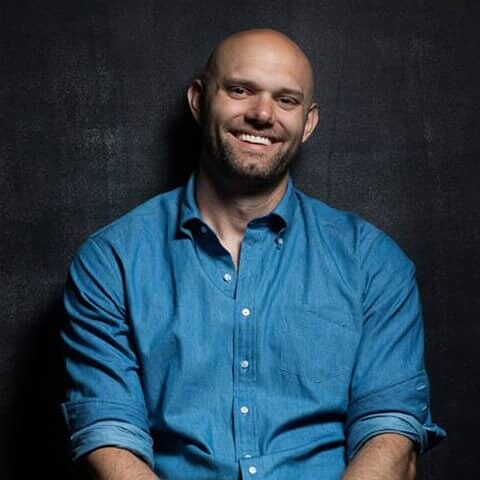 author
authorNoam Chomsky
Noam Chomsky is an American linguist, philosopher, cognitive scientist, historian, and political activist. He is widely regarded as one of the most influential intellectuals of the second half of the 20th century and one of the leading figures in linguistics. He is the author of more than 100 books on linguistics, war and politics, and mass media.
Chomsky is best known for his theory of generative grammar, which argues that the ability to learn and use language is innate and hardwired into the human brain. This theory has significantly impacted linguistics and influenced research in other fields, such as cognitive science and neuroscience.
In addition to his linguistics work, Chomsky is known for his political activism and critiques of U.S. foreign policy and capitalism. He has strongly criticized U.S. imperialism, U.S. interventions in Latin America, and U.S. support for authoritarian regimes. He has also written and spoken extensively about the role of the mass media in shaping public opinion and serving the interests of the powerful. In addition, Chomsky has advocated freedom of speech and democracy.
He is also known for criticizing the mainstream media and its role in shaping public opinion. He argues that the mainstream media serves the interests of the powerful rather than providing citizens with the information they need to make informed decisions about general issues. He has advocated for alternative media and independent journalism beholden to corporate or government interests.
Chomsky has significantly influenced the political left and peace and social justice movements. He has been described as "arguably the most important intellectual alive" by the New York Times and continues to be a prominent public intellectual and influential voice in political discourse.
In his political activism, Chomsky has been a vocal advocate for freedom of speech and democracy. He has advocated for alternative media and independent journalism not beholden to corporate or government interests. Chomsky has been critical of the mainstream media's role in shaping public opinion and often criticized the role of media in manufacturing consent.
Chomsky has been influential on the political left and has impacted various social movements and progressive causes. He advocates for workers' rights and has spoken out against poverty, inequality, and the concentration of wealth and power in the hands of the few. He has also been a vocal critic of the influence of corporate governance on politics and the democratic process.
He is also an advocate for peace and is a strong critic of U.S. military interventions and wars, arguing that these actions often result in the loss of lives and civil liberties, as well as hindering the progress of democracy around the world. Chomsky has also been a vocal critic of the War on Terror, arguing that the "war" has been used to justify a wide range of human rights abuses and has hindered the progress of democracy worldwide.
In summary, Chomsky is an influential voice in political discourse, and his activism and writing often focus on democracy, human rights, and media manipulation. He is a strong advocate for social and political change, and his work continues to inspire and inform many progressive political movements.
Best author’s book



Noam Chomsky recommends
98


1984



The Wealth of Nations



A Preponderance of Power



A Thousand Days



Accumulation and Power



After Such Knowledge, What Forgiveness?



Al-Qaeda



American Foreign Policy



Anarcho-syndicalism



Arguing About War



Between Serb and Albanian



Bitter Fruit



Business as a System of Power



Cambodia 1975 - 1982



Collusion Across the Jordan



Capital



Churchill



Collateral Damage



Danger and Survival



In the Name of Democracy



Israel's Border Wars, 1949-1956



John Quincy Adams and American Global Empire



Kennedy's Quest for Victory



Condemned to Repetition



Conflicting Missions



Confronting the Third World



Culture, Inc.



Democracy at Work



East Timor



Emergence of a Free Press



European Empires from Conquest to Collapse



Exporting Democracy



Expulsion of the Palestinians



Economic Liberalism and Under-development



Empire of Fortune



Facing West



Humanitarian Intervention



Human Rights and United States Policy Toward Latin America



Image and Reality of the Israel-Palestine Conflict



In Retrospect



Inevitable Revolutions



Instruments of Statecraft



Interventions



Just the Facts



Last Reflections on a War



Mark Twain's Weapons of Satire



Out of Control



Nicaragua



No Gods, No Masters



Panic Rules!



Peace Denied



Politics of Health Policy



Power Without Responsibility



Politicide



Qaddafi and the United States since 1969



Reagan Versus the Sandinistas



Reflections on the Cuban Missile Crisis



Safe for Democracy



Spanish Cockpit



Requiem for Revolution



Right Turn



Ruthless Criticism



Selling Free Enterprise



The Anatomy of the Nuremberg Trials



Supremacy and Oil



Taking the Risk out of Democracy



The Age of Terror



The American Occupation of Japan



The CIA



The Discovery of India



The Limits of State Action



The Marshall Plan



The Great Wave



The Iran-Contra Connection



The Kennedy Tapes



The Long Peace



The Making of the Arab-Israeli Conflict



The New Intifada



The Politics of Heroin



The Price of Power



The Record of the Paper



The Korean War



The Quality of Mercy



The Reagan Administration and Nicaragua



The Road to OPEC



The State of the World's Children



The United States and Fascist Italy, 1922-1940



The Uses of Haiti



The Transformation of American Law 1870 - 1960



The Uncensored War



U.S. Policy Toward Economic Nationalism in Latin America



Viet Cong



Voices of a People's History of the United States



War with Iraq



Washington's War on Nicaragua



Web of Deceit



Worlds in Collision
















































































































































